Filter by

Social Movements in China and Hong Kong: The Expansion of Protest Space
The starting point of this book is the acknowledgement that on one side Chinese individuals, freer from the constraints of the State, have to rely on their own efforts for their well-being and, on the other side, in some circumstances, they gather together to defend their interests. The individualisation of society goes hand in hand with the collective movements that emerged as a result of indi…
- Edition
- -
- ISBN/ISSN
- 9789089641311
- Collation
- -
- Series Title
- -
- Call Number
- 305.8 SOC s
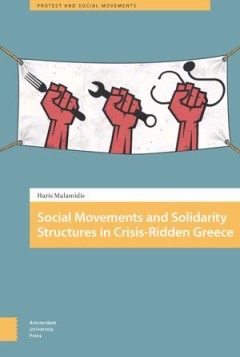
Social Movements and Solidarity Structures in Crisis-Ridden Greece
Social Movements and Solidarity Structures in Crisis-Ridden Greece explores the rich grassroots experience of social movements in Greece between 2008 and 2016. The harsh conditions of austerity triggered the rise of vibrant mobilizations that went hand-in-hand with the emergence of numerous solidarity structures, providing unofficial welfare services to the suffering population. Based on qualit…
- Edition
- -
- ISBN/ISSN
- 9789048551460
- Collation
- -
- Series Title
- -
- Call Number
- 302 MAL s

Shipbuilding and Ship Repair Workers around the World: Case Studies 1950-2010
Maritime trade is the backbone of the world’s economy. Around ninety percent of all goods are transported by ship, and since World War II shipbuilding has undergone major changes in response to new commercial pressures and opportunities. Early British dominance, for example, was later undermined by competition from the Japanese, who have since been overtaken by South Korea and, most recently,…
- Edition
- -
- ISBN/ISSN
- 9789048530724
- Collation
- -
- Series Title
- -
- Call Number
- 300 SHI s
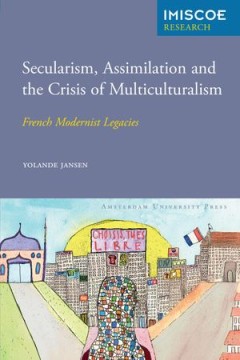
Secularism, Assimilation and the Crisis of Multiculturalism
Jansen’s book shows how even the most sophisticated academic views defending secularism and assimilation remain rooted in unexamined ‘modernist dichotomies’ inherited from French (and to some extent, European) modernism. Rainer Bauboeck, European University Institute|"For anyone who seeks to understand the roots of the "deepening crisis of multiculturalism" in Europe, Yolande Jansen's b…
- Edition
- -
- ISBN/ISSN
- 9789089645968
- Collation
- -
- Series Title
- -
- Call Number
- 300 JAN s
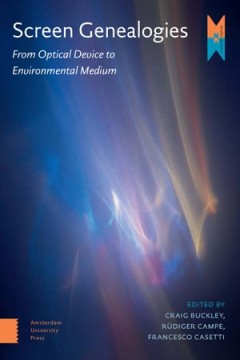
Screen Genealogies: From Optical Device to Environmental Medium
Against the grain of the growing literature on screens, *Screen Genealogies* argues that the present excess of screens cannot be understood as an expansion and multiplication of the movie screen nor of the video display. Rather, screens continually exceed the optical histories in which they are most commonly inscribed. As contemporary screens become increasingly decomposed into a distributed fi…
- Edition
- -
- ISBN/ISSN
- 9789048543953
- Collation
- -
- Series Title
- -
- Call Number
- 302.23 SCR s
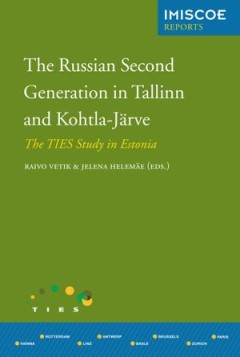
The Russian Second Generation in Tallinn and Kohtla-Järve
Second-generation Russians face two major integration challenges in the Estonian cities of Tallinn and Kohtla-Järve. They are segregated from an Estonian language society whose historical background lies in the policies and social processes of the former Soviet Union. And, compared to their peers, they face an emerging disparity in social and economic opportunities. Such inequality comes large…
- Edition
- -
- ISBN/ISSN
- 9789089642509
- Collation
- -
- Series Title
- -
- Call Number
- 300 VET r
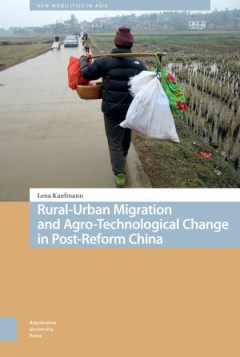
Rural-Urban Migration and Agro-Technological Change in Post-Reform China
How do rural Chinese households deal with the conflicting pressures of migrating into cities to work as well as staying at home to preserve their fields? This is particularly challenging for rice farmers, because paddy fields have to be cultivated continuously to retain their soil quality and value. Drawing on ethnographic fieldwork and written sources, Rural-Urban Migration and Agro-Technologi…
- Edition
- -
- ISBN/ISSN
- 9789048552184
- Collation
- -
- Series Title
- -
- Call Number
- 351.81 KAU r
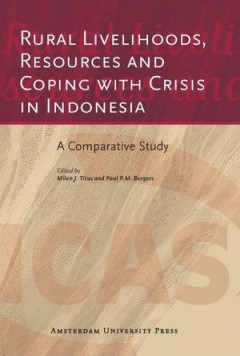
Rural Livelihoods, Resources and Coping with Crisis in Indonesia: A Comparati…
Most literature on the economic crisis in indonesia has focused on the negative macro-economic impacts during the "crisis- years" of 1997-99. The case studies presented in this book take a different perspective. With a longitudinal research perspective, this comparative study analyses a wide variety of responses to the crisis among communities and households. The case studies in this book cover…
- Edition
- -
- ISBN/ISSN
- 9789089640550
- Collation
- -
- Series Title
- -
- Call Number
- 301 RUR r

A Risky Business?
This book is about migration as a form of risk-taking. Based on Ukrainian women's experiences in the Polish domestic work sector, it presents a new approach to analyse movements of female migrants responding to the demand for household labour around the world. Risks involved in migration and in migrant domestic work are accounted for in detail alongside an analysis of the migration decision-mak…
- Edition
- -
- ISBN/ISSN
- 9789089643278
- Collation
- -
- Series Title
- -
- Call Number
- 351.81 KIN r
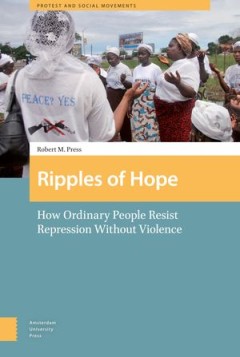
Ripples of Hope: How Ordinary People Resist Repression Without Violence
In Ripples of Hope, Robert M. Press tells the stories of mothers, students, teachers, journalists, attorneys, and many others who courageously stood up for freedom and human rights against repressive rulers—and who helped bring about change through primarily nonviolent means. Global in application and focusing on Kenya, Liberia, and Sierra Leone, this tribute to the strength of the human spir…
- Edition
- -
- ISBN/ISSN
- 9789048525157
- Collation
- -
- Series Title
- -
- Call Number
- 300 PRE r
 Computer Science, Information & General Works
Computer Science, Information & General Works  Philosophy & Psychology
Philosophy & Psychology  Religion
Religion  Social Sciences
Social Sciences  Language
Language  Pure Science
Pure Science  Applied Sciences
Applied Sciences  Art & Recreation
Art & Recreation  Literature
Literature  History & Geography
History & Geography